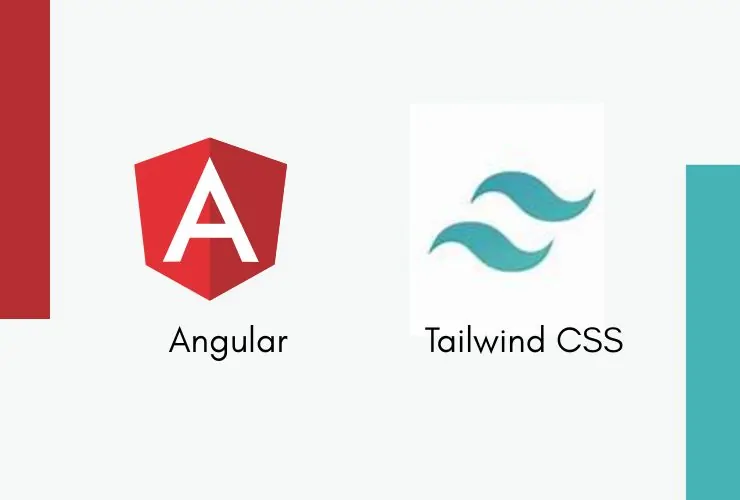In the digital landscape of today, businesses all over the world are producing powerful, scalable, reliable, and responsive applications that support complex business processes. The preferred technology stack can often dictate a project’s success over the longer term. One of the most popular frameworks to develop an enterprise-grade web application is Angular, a robust Google-backed framework designed to reduce complexity when developing an application while providing developers with unrivaled freedom.
Angular is not simply a framework, it is an ecosystem that empowers developers with TypeScript, a component-based architecture, and a growing collection of in-built tools to build applications on a large-scale. Many industries, such as finance, healthcare, retail, and logistics, are using Angular to build their mission-critical applications.
This article will examine the benefits of using Angular for an enterprise application and why it has emerged as the de facto framework for enterprises that seek to foster growth, innovation, and efficiency.
1. Scalability for Enterprise Applications
Enterprise applications tend not to be static, and more often than not, they become a moving target with business growth and customer needs. Fortunately, Angular’s modular architecture is amenable to scalability!
- Feature Modules: Applications can be organized as smaller, discrete feature modules, which allows teams to work side-by-side (in parallel) without disrupting each other’s work on the core application’s functionality.
- Lazy Loading: Feature modules can be loaded only when needed, and only when available for the application’s performance load while maintaining app responsiveness—even when the app grows.
- Enterprise-Level Projects: Easily accommodates many individuals across large teams collaborating in multiple business units by integrating existing enterprise software (which can be complex).
Our application’s scalability means that an enterprise application built on Angular will be able to grow without limitations as your business scales.
2. Performance and Speed
Performance is critical to enterprise applications for two primary reasons. If the performance slows down or intermittent downtime occurs, this can easily result in lost productivity, and lost revenue. Angular is built for performance by leveraging all of the following:
- Ahead-of-Time (AOT) Compilation: The TypeScript and HTML files are compiled and transformed into lean JavaScript files at build-time, which means all the effort that optimizes AOT performance benefits the rendering of your application.
- Change Detection Strategy: With OnPush change detection and trackBy functions, your application can update its DOM without needing to deep dive or bidirectionally traverse the entire Angular tree – making it incremental, efficient and user-focused.
- Server-Side Rendering (SSR): SSR increases the accessibility of your application (business), in addition to load performance time – especially for page-render heavy large scale apps and SEO-based web applications.
- RxJS for Reactive Programming: RxJS makes this ability to manage data anywhere in your application easier and more productive – and remains responsive as well as scalable!
3. Robust Security Features
Security is vital for enterprises that are dealing with sensitive information, such as financial records, medically-based data, or customer information. Angular has strong security controls built-in, such as:
- Automatic DOM Sanitization: which secures against cross-site scripting (XSS).
- Built-in Features for Authentication and Authorization: to lessen the potential risks of vulnerabilities.
- Supports Secure Authentication & Authorization: integrates easily with OAuth, JWT, and other secure enterprise-level security frameworks.
- Commitment to Best Practices: with Google backing Angular, it is constantly evolving to confront current or emergent security threats.
Your enterprise can be confident that it is well-protected against altering and very real cyber threats with the well-maintained and periodically reviewed security features of Angular.
4. Consistency within Enterprise Standards
Large organizations need consistency to have the ability to maintain and collaborate on applications. Angular enables consistent coding standards through:
- Angular CLI (Command Line Interface): provides a pre-set project structure for all developers, stiffening a coding standard for Angular applications out-of-the-box with boilerplates and demo commands.
- TypeScript as a Primary Language: allows debugging the application easily allows for have strongly typed code which allows more proactive detection of errors.
- Always Have Best Practices: because Angular has an official style-guide, provide controls for naming standards as well as file structure standards, and rules regarding coding conventions.
If you have a high level of consistency in your Angular applications, this leads to higher releasable quality enterprise applications. The benefits of consistency also create an easier point to onboard developers when we have pre-set coding practices and standards. Consistency is everywhere when applying Angular as a primary language and framework.
5. Better Development Efficiency
If reducing time-to-market is a key objective for organizations, efficiency is a significant advantage. Angular improves development efficiency in many ways, including the following:
- Two-way data binding: Makes the synchronization between model and view quicker.
- Dependency injection (DI): Makes the code easier to reuse and test.
- Pre-packaged UI components with Angular Material: Offloads a good part of the UI/UX development with components built with not just ease of use and accessibility in mind, but also responsivity.
- Powerful Tooling: Angular CLI, debugging, and IDE support improve the development process.
When you decrease development time, you enhance an organization’s speed to deploy new features while maintaining some flexibility to continually adapt to changing market conditions.
6. Enterprise Grade Maintainability
Maintainability is equally important for enterprise applications since they must be able to run for many years. Angular allows maintainability in enterprise applications for several reasons, including:
- Reusable components: code reusability allows for less redundant code and better maintainability.
- Separation of concerns: exists to varying degrees based upon the degree of separation among differences in functionality.
- Long-lasting support: continues to garner investment from Google to help ensure reliability and to future-proof upgrades and support.
We think this translates to a reasonably safe and long-term investment for an enterprise application.
7. Strong Community and Ecosystem
Organizations gain from Angular’s lively global community and ecosystem. With thousands of contributors, third-party libraries, and other resources, developers can find the answers to their problems as well as a wealth of ideas and solutions quickly.
In addition, as Angular has Google backing, organizations can be confident that their investment is assured. Google has committed to maintaining and updating the framework, giving organizations long-term confidence in Angular as a framework.
Conclusion
Angular is more than a framework, it’s an entire solution aimed at organizations looking to build enterprise applications. Angular’s performance, scalability, security, maintainability, and consistency make it a perfect choice for organizations wanting to create powerful applications that will remain future-proof.
By investing in Angular, organizations will become more operationally efficient, reduce their risk, and ensure their future digital success.
Our Angular Development Services at Empirical Edge
At Empirical Edge, we specialize in delivering enterprise-grade Angular applications tailored to your business needs. Our services include:
- Custom Angular Development
- Enterprise Web Applications
- Angular Migration & Upgrades
- UI/UX Design & Development
- Performance Optimization & Maintenance
Learn more here: Angular Development Services
Build powerful enterprise applications with Angular. Partner with experienced developers to create secure, scalable, and high-performance solutions that drive innovation and long-term business success
Frequently Asked Questions
Angular enables organizations to build scalable, secure, and high-performance applications that support complex business processes.
Its modular architecture, feature modules, and lazy loading allow applications to grow alongside business needs without disrupting performance.
Angular improves speed through Ahead-of-Time compilation, efficient change detection, server-side rendering, and reactive programming with RxJS.
Yes. It includes automatic DOM sanitization to prevent cross-site scripting and supports secure authentication frameworks like OAuth and JWT.
Yes. A large global community, third-party libraries, and continuous updates provide resources and long-term confidence for organizations.














